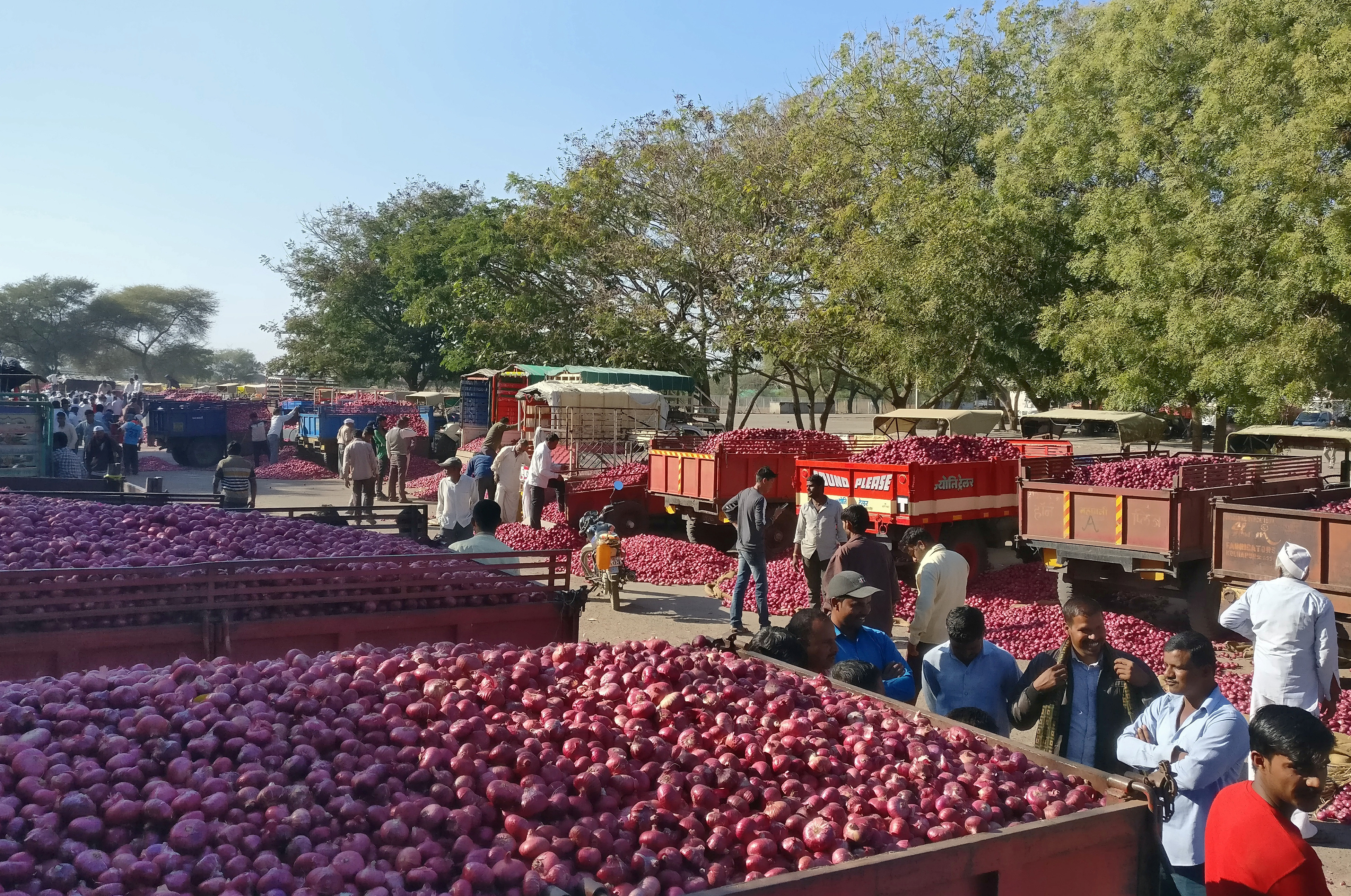[ad_1]

Farmers anticipate the public sale of onions at Lasalgaon market in Nashik district within the western state of Maharashtra, India, December 19, 2018. Picture taken December 19, 2018. To match Insight INDIA-ELECTION/ONIONS REUTERS/Rajendra Jadhav/File picture Acquire Licensing Rights
MUMBAI, Aug 19 (Reuters) – India will impose with quick impact a 40% export obligation on onions as much as Dec. 31 in an try to enhance home availability of the vegetable, the ministry of finance stated in a notification on Saturday.
The obligation imposed by the world’s largest exporter of onions will assist New Delhi dampen native costs forward of key state elections later this yr however will drive Asian patrons to shell out extra, as different regional exporters have restricted provides.
“The export duty will make Indian onions more expensive than those from Pakistan, China, and Egypt. This will naturally lead to lower exports and aid in reducing local prices,” stated Ajit Shah, an exporter primarily based in Mumbai.
Average wholesale onion value in key markets has jumped practically 20% from July to August, to 2,400 rupees ($28.87) per 100 kg on considerations that erratic rainfall would result in decrease yields.
India is heading for its driest August in more than a century, with scant rainfall more likely to persist throughout massive areas, partly due to the El Niño climate sample, two climate division officers instructed Reuters on Friday.
“Onions harvested during the summer months are rotting quickly, and the new supplies are being delayed. This situation has prompted the government to take precautionary measures,” stated one other Mumbai-based exporter.
India’s onion exports within the first half of 2023 jumped 63% from a yr in the past to 1.46 million metric tons.
Countries corresponding to Bangladesh, Nepal, Malaysia, United Arab Emirates and Sri Lanka depend on Indian shipments.
Onions are used as the bottom for conventional dishes throughout Asia corresponding to biryani in Pakistan and India, belacan in Malaysia and fish curry in Bangladesh.
“The Indian duty would prompt China and Pakistan to raise prices, as they have a limited surplus for exports,” stated the second exporter.
India’s annual retail inflation (INCPIY=ECI) in July rose to its highest in 15 months as vegetable and cereals costs skyrocketed, placing stress on the federal government to take motion to convey down costs.
India stunned patrons final month by imposing a ban on widely consumed non-basmati white rice gross sales to dampen value rises.
Reporting by Rajendra Jadhav, Swati Bhat and Nikunj Ohri; Editing by Toby Chopra and Clelia Oziel
Our Standards: The Thomson Reuters Trust Principles.
[adinserter block=”4″]
[ad_2]
Source link